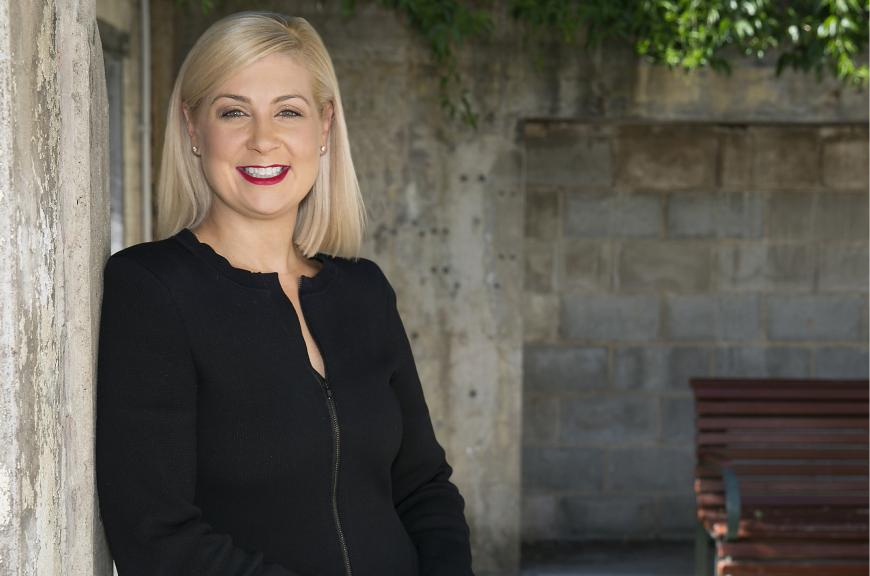Women in Real Estate: The Game Changer of the Next Decade
For several decades, the real estate sphere was regarded as a man’s world. Actually, the National Association of Realtors (NAR) has come a long way since its founding in 1908 when membership was entirely male. The first woman joined NAR in 1910, but women struggled for the next half century or so to serve on real estate boards. Breaking into the industry was so challenging for female individuals that – until the 1980s – they could not even buy real estate without a male co-signer. Nevertheless, with the sector getting more organized, competitive as well as accepting, there has been increased penetration of female agents in the industry.
These days, women real estate agents are changing the game. Statistically, the industry data highlight that there are more female agents in all states across the US, outnumbering male agents by up to 50%, putting the female to male ratio at 2:1, bringing an entirely new dimension to the traditionally male-dominated sector. Let’s read on to see how aspiring female realtors have “turned the table”, their major hurdles as well as distinct advantages when “playing around” within this landscape.
Women in Real Estate: Breaking the Glass Ceiling
In the past few decades, over the real estate industry – which had quintessentially been a masculine landscape where women have largely remained underrepresented, there exists a significant paradigm shift with the huge expansion of firms and the inclusion of female talent. Whereas the gender role reversal has definitely been a game-changer, the industry itself has undergone some subtle transformation, evolving into a field with a higher degree of professionalism that’s well suited to women. There emerge more and more companies now offering an inclusive workplace culture that does value diversity, thus encouraging more women to take up the profession.
In fact, according to the NAR 2017 Member Profile, the majority of realtors – staggeringly 63 percent, to be exact – are women. Also, as NAR’s 2017 overview of the real estate market revealed, the typical real estate agent is a 53-year-old white woman who attended college and is a homeowner.
To be more precise, within NAR, women make up:
- 56 percent of licensed brokers
- 66 percent of sales agent licensees
- 63 percent of full-time sales agents
- 69 percent of part-time sales agents
Furthermore, a myriad of large developer groups, real estate-focused lending institutions, and even private equity firms has recognized the extra measure of multi-tasking, empathy, insight, and assertiveness that a female realtor brings to the table, and boast of multiple women holding senior executive roles. Whilst such inherent multi-tasking abilities enable them to cope up in this competitive world, a broader market vision, nurturing outlook, and corporate goodwill is expected to empower women to balance out and offer the essential synergies required to manage their business.
“For women, real estate is often a second career,” said Cindy Scholz, a real estate expert founding the Scholz Real Estate team at the age of 20 and building it into one of the top-grossing teams at Compass Real Estate in Manhattan. “Most entered real estate because it afforded them flexibility, the ability to manage their own careers and, not least, the ability to double their income in the first year.”
Taking another industry perspective, given that women may dominate the industry numerically, they are still in the minority in the lucrative world of commercial real estate and at the CEO level of real estate and land use organizations. As the 2017’s report, only 12 percent of respondents to a NAR survey were in the President, CEO, executive director, or similar roles – plus, of the female CEOs, only 7 percent led companies with more than 100 employees.
Nonetheless, that is beginning to change. “At Compass, 50% of the agents are female,” shared Cindy Scholz. “What is more telling is that 50% of the executive team is female.”
Kristen Jock, another outstanding agent with Compass’ New York office, points to the particular challenge that women face. “I became a licensed real estate salesperson at 25, and as a young woman in business, it could be difficult to get people to take me seriously.” She went on, “However, I have found it can be even more difficult to give myself credit. I have heard similar rhetoric from prominent, intelligent, seemingly confident women across many industries.”
Compass agent Maria Ryan of Brooklyn also shared her standpoint, “For me, it was important to learn to self-promote. When marketing is done so that you stay true to yourself and remain authentic, your business grows organically.”
Notably, Cindy Scholz has founded a “Women of Compass” initiative that, in her words, “Highlights women, both internally and externally. We have speakers, all of whom are women. But the attendance at those meetings is half men, half women.”
For women who can negotiate these “choppy waters” – troublesome and uncertain times, the payoff is likely to be substantial. Let’s take an example of Judy Citron of Palo Alto, California, who entered the real estate sphere at the end of 2009 when the market was down. After “weathering the storm” of early stages, in 2018, she did represent over 50 transactions with whoppingly more than $235 million in sales volume and was ranked the #20 agent nationally by the Wall Street Journal’s RealTrends in 2018.
This is the wave of the future. “Of first-time homebuyers, only seven percent are single men,” Scholz told. “17% are single women. Women now control their own finances. We, as realtors, show women how to grow their wealth.”

Women in Real Estate: Considerable Advantages
Beyond any doubt, there has been an increasing number of women who have learnt the intricacies of real estate business and are now pursuing it as an occupational profession and working independently as agents. Not only does the line of work promote women’s personal and professional growth prospects but it also grants them the flexibility to choose their own working hours from the comfort of their homes.
In practice, there do exist various instances where partners have quit corporate jobs to join their wife’s part-time real estate initiatives, turning it into a full-fledged business. Let’s see! Kim Howard, a well-known name in the US real estate, decided to quit her corporate job when she recognized her passion for sales and entrepreneurship and ended up founding her own real estate firm Howard Homes Chicago. What was also amazing is that it wasn’t long before she recruited another player into her business – her husband.
When it comes to excelling within the real estate landscape, there remain some elementary competencies, which are strong, active network connections, familiarity with local areas, and firm negotiation skills. Since these attributes come naturally to the majority of women, they can adapt quickly and become quite successful at their jobs, gradually redefining the industry altogether. Additionally, women are generally known to exhibit a greater level of empathy, and persistence – actually, they tend to be more sensitive and patient towards the client’s need, which results in higher client satisfaction ratio.
Being typically “masterful” at striking the work-life balance, women are better at multi-tasking, a critical aspect of real estate. Given that several careers demand women to choose between fixed long hours and working in a caring capacity as a home-maker, real estate career allows them to fulfill both work and family goals while working with a nominal initial investment. All one needs is just a phone and a laptop to get started!
Women in Real Estate: Keri Shull – The Mother Of 3 & Charismatic Leader of Top Team In Virginia
Having begun the illustrious career as an Oscar Meyer Weiner Girl, driving the Weinermobile across the US for $30K a year, Keri Shull is now running a real estate empire, leading a team of 85 to more than $4B in sales. Founded in 2010, Keri’s real estate team is ranked #1 by volume in the Washington DC metro area and #33 by volume nationwide according to REAL Trends and The Wall Street Journal. Keri also serves other realtors looking to scale through HyperLocal HyperFast Coaching and HyperFast Academy, an online community where real estate agents can get life-changing training and personal coaching from Keri and her husband Daniel Lesniak.
So, how has Keri Shull gone from driving a “hot dog” to scaling a real estate team that dominates the DC Metro market? Let’s proceed!

When it comes to the factors that distinguish Keri’s team from other competitors and make it #1 in her market, she genuinely shared, “I think it’s a combination of two things. So, the first, and this may sound cliché, but I care a lot about the clients and I care a lot about my team. And I think that that goes a lot way. When you actually dig deep to solve problems people remember you and they reward you with introducing you to a lot of people. And so that at the core has been what kept my business going. But then I’m also a very focused marketer. And I am not too proud to copy.”
Speaking of the idea of growth by “replicating” other’s success, she further explained, “I will go and travel to conferences like you and I met at, at Closing Table, and I will learn from some of the best and the brightest. And they don’t have to be doing more business than I am, all they need to have is an idea that’s executable, that’s working for them, and I’ll install it into my business exactly like they’re doing it, recalibrate it for my market, and run.”
Keri added, “Where I feel a lot of people make mistakes is, they go to conferences, they learn something, and then they see at the surface what someone’s trying to do and they just implement the surface and all of the behind the scenes are missed”. Unfortunately, “… that’s the biggest value in what you’re learning from someone. Like how are they answering the phone? What are they saying? What are the intricacies of what they’re doing that will make the difference for you?”
Then, when asked about her team-building experiences, she particularly stressed that “I never maxed out as a solo agent.” Interestingly, the first thing that inspired Keri to establish a team was when attending a live event – “I started in 2008, I signed up for a live event … I went and it blew my mind. I met people that were doing hundreds and hundreds of transactions and had huge teams. And it really paved the path for my future”. Distinct from others, another thing in her leadership mindset when considering hiring talents to form a team is hiring to solve for weaknesses.
“A lot of coaches will tell you, you have to hire this person and then this person and then this person and these are the activities you need to focus on. But I feel like that’s very linear and I’m not really that kind of a person. I’m more like, okay what are the problems, and how do we solve them for the individual? So that was my focus. Like what do I need to compensate in myself?”
She also took a usually approach to staffing and … overstaffing for her real estate team.
“… today I have 85 people. And I’ve focused on overstaffing. So, because I realized my weakness as a salesperson is all of the details and all of the follow-up, I’ve tried to support my sales team and give them a crazy amount of support.”
Keri went on, “I think when people lack confidence, they wait too long, they lose relationships because their service suffers, and ultimately they lose really good people. For me, I would rather hire ahead of the sales people so that when they come on, they get the support they need. They have traction immediately and they’re very successful very quickly. And the clients are taken care of.”
She continued, “So, it’s not to say that I’ve never had times where I’ve been under staffed in certain positions. That’s inevitable when you’re growing a business. It’s inevitable. But what you can do is anticipate where you’re going and hire for that. And so there’s a lot of people out there who will train you, never hire ahead. Once you get the business, then you go out and hire for it. But there’s been positions that I’ve needed that have taken me six months to find the right person.”
Besides, team training is more than crucial to the business success, especially in the real estate industry. So how did Keri manage to train her team, particularly an overstaffing team? The answer is truly quite simple – from Keri’s standpoint, there remain two keys that matter the most. So, let’s discuss over the first one, which revolves around social proof and coachability.
“… five years ago, I said I only hire the new people. And the reason is, they’re more coachable. That’s not true. It’s just that you haven’t given them social proof to believe they need to listen to you more than themselves… So, once we are able to do that by showing them [their employees] we can take someone brand new, we can take someone seasoned and ultimately, they’re more successful than you are. All of the sudden they listen a lot faster and they become coachable.”
The second handy tips to “coach” employees that Kari did take is to design an evolving commission and salary models.
“We have a bunch of different commission models. We have a bunch of salary models. So when I say that, for a while we were looking at it and we were saying, okay we’re going to be able to put more money into our lead generation systems and ramp people up and make them more successful faster if we could take people from sales industries outside of real estate, give them a salary, give them the confidence, and then give them bonuses to hit their income goals.
So, we tested that. And ultimately here was the result. It was incredibly successful. We hired amazing people. They got really burnt out. And it wasn’t like we felt confident that we could grow an entire army of salespeople just doing it that way. So eventually we said okay, once they graduate from that, they can go to commission only. Then we created a whole commission plan around that.”
After all, to scale the team success by moving from idea to execution in an insanely short period of time, it took more than just technical expertise or mere experiences – it required strong leadership mindset as well as solid yet unique approaches, which Kari outstandingly managed to take. Having it all from being a mother of 3 and influential girl boss of the top team in Virginia co-founded with her husband, Keri Shull once more exemplifies the fact that women can and exactly are changing the real estate game, which was initially male-dominated profession.
The Bottom Line
Beyond any doubt, over recent decades, there emerge dramatic shifts in paradigm and power of females within the real estate sphere. Rather than being mainly staffed and controlled by male personnel, several firms are consciously placing women in leadership positions due to their distinctive skillset, outlook as well as life experience that not only expands the firm’s vision but also yields on-ground results. The future of women in real estate is exceedingly bright and transformational – and the world has just got a glimpse of what they can do!









